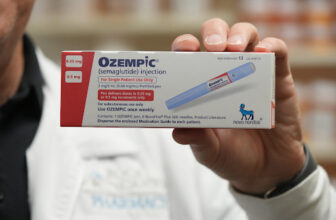
[adinserter block=”3″]
Berberine, derived from plants like barberry and goldenseal, has recently gained notoriety for its health benefits. However, a lingering question surrounds its effect on liver health. In this comprehensive guide, well delve into the scientific perspectives, risks, and benefits associated with berberine, providing you with the information needed to make informed decisions.
Understanding Berberine
Berberine, a natural alkaloid with roots in traditional medicine, has found its way into modern discussions on health. Known for its antimicrobial, anti-inflammatory, and antioxidant properties, berberine has piqued interest in addressing conditions such as diabetes, cholesterol imbalances, and cardiovascular issues.
The Berberine-Liver Connection
To comprehend the potential impact of berberine on the liver, its crucial to understand the livers pivotal role. As the bodys chief detoxification organ, the liver plays a crucial role in metabolizing drugs, filtering toxins, and regulating various metabolic processes.
The Livers Vital Role
Beyond its role in detoxification, the liver actively participates in nutrient metabolism, blood clotting, and immune system support. Any substance that interacts with the liver raises questions about its potential impact on these essential functions.
Scientific Perspectives
Scientific studies on berberines impact on the liver have generated diverse findings. Some studies suggest that berberine may have liver-protective effects by reducing inflammation and oxidative stress. However, other research highlights potential risks, emphasizing the need for caution.
Its essential to acknowledge the complexity of individual responses. Factors such as dosage, duration of use, and pre-existing health conditions may significantly influence outcomes.
Risks and Benefits
As with any supplement, moderation is key. Berberine has shown promise in managing blood sugar levels, supporting cardiovascular health, and exhibiting antimicrobial properties. However, excessive intake may pose risks, especially concerning liver health.
Before incorporating berberine into your routine, its advisable to consult with a healthcare professional. They can provide personalized guidance based on your health status and help you strike the right balance.
Exploring the Nuances of Berberine and Liver Health
To grasp the full picture, lets delve deeper into the relationship between berberine and liver health. While some studies propose positive effects, others suggest potential risks. The nuanced reality calls for a closer look at specific aspects:
Berberines Liver-Protective Effects
Antioxidant Properties
Berberine exhibits potent antioxidant properties, neutralizing harmful free radicals. By reducing oxidative stress, it may contribute to liver protection.
Anti-Inflammatory Potential
Inflammation is a key player in liver diseases. Some studies indicate that berberines anti-inflammatory effects might alleviate stress on the liver.
Blood Sugar Regulation and Liver Health
Berberine has gained acclaim for its ability to regulate blood sugar levels. Stable blood sugar contributes to overall metabolic health, impacting the liver positively.
Potential Risks of Berberine on Liver Health
Dose-Dependent Effects
Studies suggest that the impact of berberine on the liver may be dose-dependent. While lower doses appear to be well-tolerated, higher doses might pose risks.
Individual Variability
Individual responses to berberine vary. Factors such as genetics, overall health, and existing liver conditions play a role in determining how the liver responds to berberine.
Navigating the Gray Areas
The contradicting findings necessitate a cautious approach. Moderation is key, especially for individuals with pre-existing liver conditions. Regular monitoring through liver function tests ensures timely detection of any adverse effects.
Conclusion
In conclusion, the relationship between berberine and liver health is intricate. While some studies suggest potential benefits, others highlight risks. Informed decisions hinge on understanding the nuances, prioritizing moderation, and seeking guidance from healthcare professionals.
Stay informed. Stay healthy.
Frequently Asked Questions
Is berberine safe for liver health?
The safety of berberine depends on various factors. Consult your healthcare provider for personalized advice.
Can berberine supplements cause liver damage?
While some studies suggest potential risks, conclusive evidence is lacking. Moderate consumption is advisable.
Are there alternatives to berberine with lower liver risks?
Consult your doctor for alternative supplements that may suit your health needs and minimize potential risks.
How to monitor liver health while taking berberine?
Regular liver function tests and open communication with your healthcare provider are crucial for monitoring and addressing any concerns.
Can berberine be beneficial for liver health?
Some studies suggest potential benefits, but individual responses vary. Consult your healthcare professional for personalized advice.
[adinserter block=”3″]
Credit : Source Post






